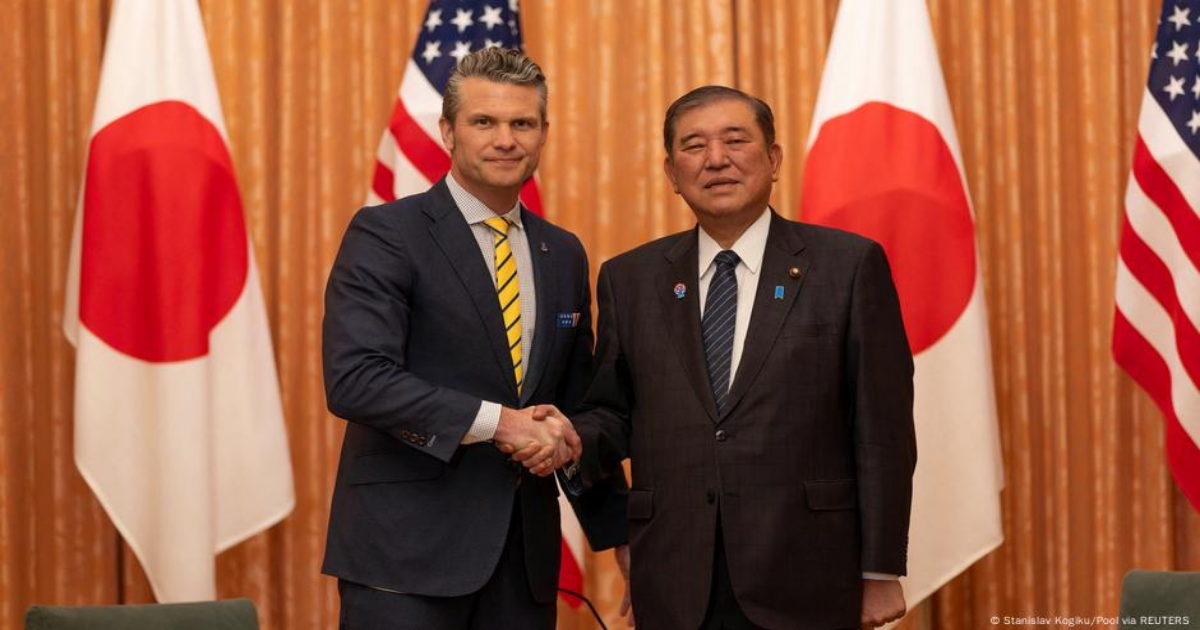United States Defense Secretary Pete Hegseth said on Sunday that Japan was crucial to helping tackle potential Chinese aggression.
Hegseth made the comments as he announced the implementation of a plan to upgrade the US military command in Japan is set to get under way.
“We share a warrior ethos that defines our forces,” Hegseth told Japanese Defense Minister Gen Nakatani at a meeting in Tokyo.
“Japan is our indispensable partner in deterring communist Chinese military aggression,” including across the Taiwan Strait, he said.
Hegseth also met with Japanese Prime Minister Shigeru Ishiba.
Focus on protecting Taiwan Strait
In July, former President Joe Biden‘s administration announced a large-scale overhaul of the US military command in Japan, as the two countries labelled China their “greatest strategic challenge.”
Beijing has stepped up military pressure in recent years around Taiwan, including near-daily air incursions, and has not ruled out using force to bring the self-ruled island under its control.
To view this video please enable JavaScript, and consider upgrading to a web browser that supports HTML5 video
“America is committed to sustaining robust, ready and credible deterrence in the Indo-Pacific, including across the Taiwan Strait,” Hegseth said, using Washington’s term for the Asia-Pacific region.
Partnerships required despite ‘America First’ agenda
President Donald Trump had said during his first term that Japan should pay more to host US troops and complained that the bilateral defence treaty, in which Washington pledges to defend Tokyo, is not reciprocal.
Japan currently hosts 50,000 US military personnel, squadrons of fighter jets and Washington’s only forward-deployed aircraft carrier strike group along a 1,900-mile (3,000-kilometer) East Asian archipelago that hems in Chinese military power.
“President Trump has made it very clear, and we reiterate, we are going to put America first. But America first does not mean America alone,” Hegseth said. “America and Japan stand firmly together in the face of aggressive and coercive actions by the Communist Chinese.”
Trump calls for reciprocal defense spending
There have been expectations that, as he has done in Europe, Trump would press US allies in Asia to increase military spending and to do more to ensure their own defense.
Japan’s government has been reeling from Trump’s decision to impose a 25 percent tariff on auto imports from April 3.
Nakatani told Hegseth that spending should be “implemented based on Japan’s judgement and responsibility.”
“I also explained Japan has continuously been working on a drastic strengthening of our defence capability… on which we received understanding from the US side,” he said.
Edited by Sean Sinico
